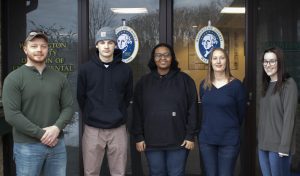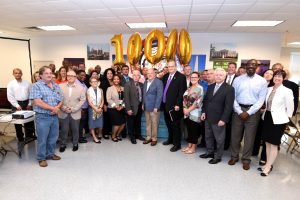Maryland Apprenticeship Programs Help Double Number of Job Applicants
With nine water resource recovery facilities (WRRFs), eight drinking water treatment facilities, 45 pumping stations, and miles of pipelines to operate and maintain, the Washington County Department of Water Quality (DWQ; Williamsport, Md.) sometimes struggles to find qualified candidates for its many technical jobs.
Since the launch of a new wastewater operator apprenticeship program last year, however, DWQ has received about double the number of applications for open positions, said Kevin McClanathan, chief operator for one of DWQ’s WRRFs and a technical advisor for the apprenticeship program.
Tapping into local talent
Approved last year by state regulators, the 3-year apprenticeship program offers training in biology, hydraulics, automated systems, laboratory procedures, mathematics, management, budgeting, and industrial safety. Graduates of the program leave fully licensed by the Maryland State Board of Waterworks and Wastewater Operators and are eligible to serve as senior plant operators.

“Our approach to coaching and mentoring allows us to tailor the training to each apprentice and gives management the confidence that each graduate of the program is a competent operator,” McClanathan said.
The wastewater operator apprenticeship program is one piece of a larger recruitment puzzle, which includes tapping into the talent pool from the high schools, community colleges, and the local workforce within the 1,209-km2 (467-mi2) region DWQ serves, said McClanathan.
To raise its profile among county residents, for example, DWQ partners with Washington County Public Schools to offer youth apprenticeship programs that enable high school students to shadow water and wastewater operators, lab technicians, and other professionals. DWQ also works with Hagerstown (Md.) Community College to recruit students with solid microbiology foundations for vacant apprenticeship positions.
“This outreach has introduced the occupation of wastewater operator to people who may have never considered this profession due to its grimy façade,” said McClanathan. “Students don’t necessarily realize the competencies it requires or the technology available to today’s operators.”
Already seeing results
In addition to attracting more applicants, the apprenticeship program is also producing its first wave of graduates. The WRRF where McClanathan works hired its first apprentice operator in December 2018 after she passed her state licensing exam 2 years ahead of schedule.

The first class of youth apprentices have also graduated, each completing 480 hours of required training.
At the current rate, McClanathan says he expects the apprentice program to produce the steady supply of qualified candidates needed to fill vacant positions. He couldn’t ask for anything more.
More information on the Washington County Wastewater Apprenticeship Program is available by contacting info@mdapprenticeship.com or 410-767-2246.
— Mary Bufe, WEF Highlights
